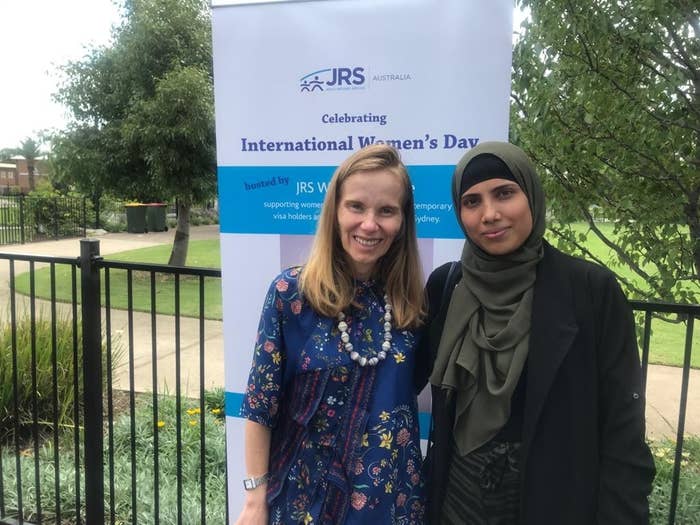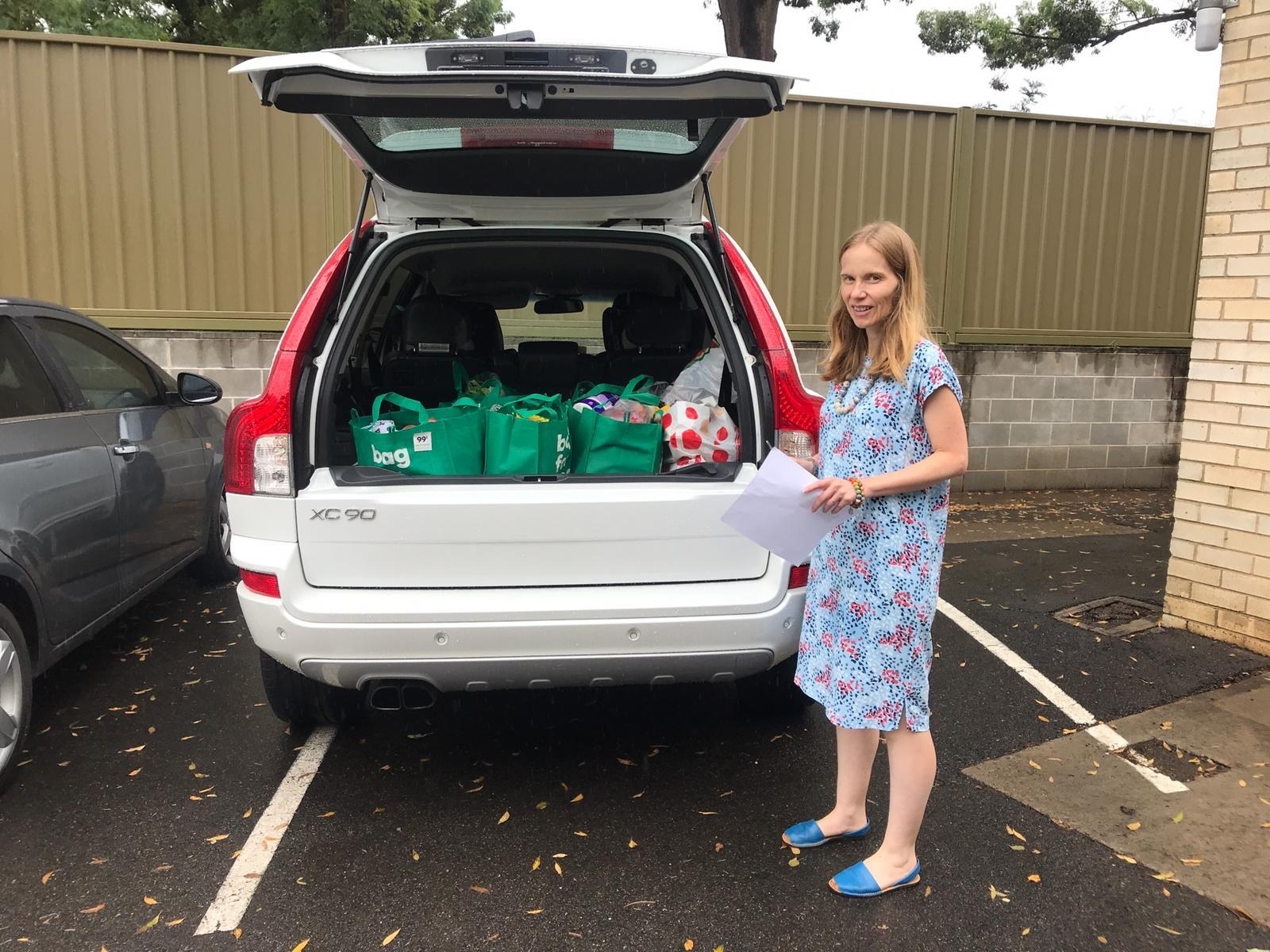
The journalists at BuzzFeed News are proud to bring you trustworthy and relevant reporting about the coronavirus. To help keep this news free, become a member and sign up for our newsletter, Outbreak Today.
Carolina Gottardo said her job is changing rapidly — at first by the week, then by the day.
“It has been incredible,” Gottardo, the director of the Jesuit Refugee Service (JRS) charity in Sydney, Australia, told BuzzFeed News. “I’ve never seen anything like this.”
Gottardo's charity was already confronting a crisis before the coronavirus hit. Many of its refugee and asylum seeker clients had been removed from the small payment the home affairs department provides to people seeking asylum, and were facing homelessness and destitution.
The pressure on the charity’s services — casework, legal advice, employment support, foodbanks, emergency relief, and community activities, provided at drop-in centres in Western Sydney — was immense.
Now the situation is even worse. Asylum seekers who were working and doing well are now losing their jobs. Unlike Australians in the same situation, most do not have access to welfare payments to see them through this period. Clients who the JRS caseworkers hadn’t seen in years are now returning, asking for help.
“We were so happy because they were doing OK, they were completely independent,” Gottardo said. “It’s just heartbreaking. We have seen them at their strongest, and now they have no option again but to rely on charity.”
The Australian government has introduced extraordinary measures to protect Australians’ jobs and provide a welfare safety net for the unemployed. However, the Morrison government has so far ignored calls from Labor, the Greens and community groups to extend welfare support to people on temporary visas.
More and more people are arriving at JRS drop-in centres in crisis, and the charity has seen a surge in demand for emergency relief to help them with rent, medicine and basic expenses. Last week, the number of clients waiting for a call back or appointment was twice that of the week before, as was the number of new clients. Clients are increasingly talking about suicide, and family violence has also increased.
When a case is urgent, JRS labels it with a red flag internally. Most of the cases presenting now are given red flags.
Where they previously tried to meet their clients’ holistic needs, “our priority is now survival”, Gottardo said. "It is very difficult to cope."
Abu*, a client from Sierra Leone seeking asylum from persecution over his activism against female genital mutilation, told BuzzFeed News people like him on bridging visas were suffering from a “double virus”.
“The coronavirus is affecting [us], and also the things that will keep [us] alive or able to live a dignified life: salaries, the ability to pay [our] rent and buy food,” he told BuzzFeed News.
Abu's short-term visa meant he could not find work when he first arrived in Australia in 2018. With the help of JRS, he got a job at a hospitality social enterprise, and moved out of emergency accommodation into a rental apartment in Western Sydney. But the coronavirus has threatened the business' sales, and Abu's shifts have been cut.
“Every day when I sleep, when I wake up, my heart is not happy,” he said. “I am so worried. I think I will be the next victim. If my job ends and I’m a casual worker, I have to pay my rent.” But he won't go to a homeless shelter, he said, because he would not be able to socially distance there.
He hopes the government will step up to help people in his situation. “If you are making life better for your citizens, what about the refugees who are working and paying their taxes?”
Last week a heavily pregnant single mother of two asked JRS to help her return to her country because of her anxiety over the coronavirus. But airlines won’t let her fly for health reasons. “Basically, she doesn’t have anything,” Gottardo said. “She doesn’t know how to survive.” Other JRS clients want to go back to their home countries but have been unable to leave.

As demand has risen, the charity’s capacity to respond has dropped. Hundreds of people already relied on the JRS foodbank, and the numbers are rising. Gottardo said that the charity always had more demand for food than it received in donations, but now that donor parishes and schools are closed they have to buy most of the food.
Staffing is also a challenge. Fears about the spread of the virus mean the charity’s volunteer numbers have dropped by almost half. It is difficult for caseworkers to work from home as they need peer support to do their jobs.
“The caseworkers care so much about the people that we have helped and it’s just heartbreaking for them to see them coming back here, relying on charity,” she said. “The people they have invested so much time in are now in situations of crisis. It’s almost like returning to step one.”
At the same time, the charity is planning for things to get worse. If Sydney enters a full lockdown, they will develop a drop-off service for food, rather than asking people to come to their centres to pick it up.
Gottardo said the government needs to provide more support for charities and to ensure they’re still considered essential services.
“The situation is unsustainable,” Gottardo said. “We’re trying to do our best and we will continue operating... we are doing the best we can but the numbers are not going to drop and the government needs to do this.”
The government announced $200 million in support for charities providing emergency relief, but it is not yet clear if JRS and other refugee charities will receive any of that funding.
She also wants the government to extend benefits to people regardless of their immigration status. “The coronavirus does not discriminate on the grounds of status,” she said. “Neither should we in our response.”

